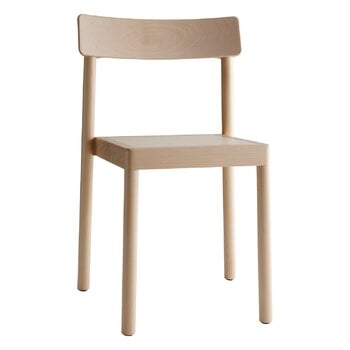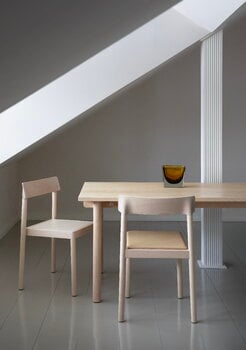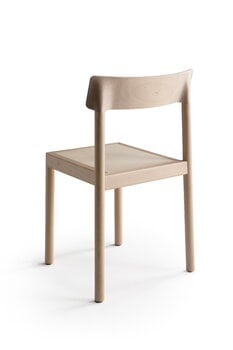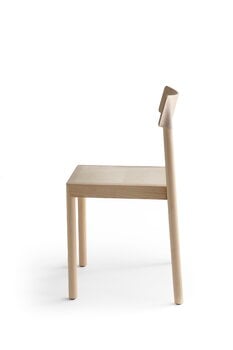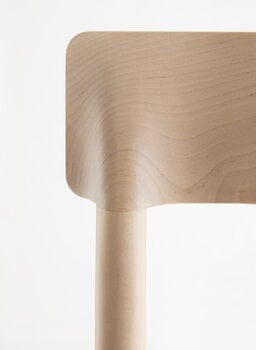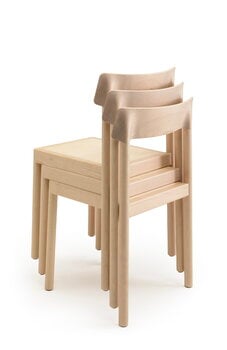Nikari's Kumu chair elegantly combines simplicity with attention to detail. Designed in 2024 by Pekka Koivikko, this solid birch chair is perfect for both homes and public spaces. Whether placed at a dining table or in a conference room or waiting area, Kumu fits seamlessly into any setting. Its rounded legs and corners soften the minimalist design, while the lacquered wood surface showcases the subtle grain patterns of birch. Thanks to its stackable design, Kumu chairs are easy to store even in small spaces.
Nikari products are made in Finland using only certified wood.

